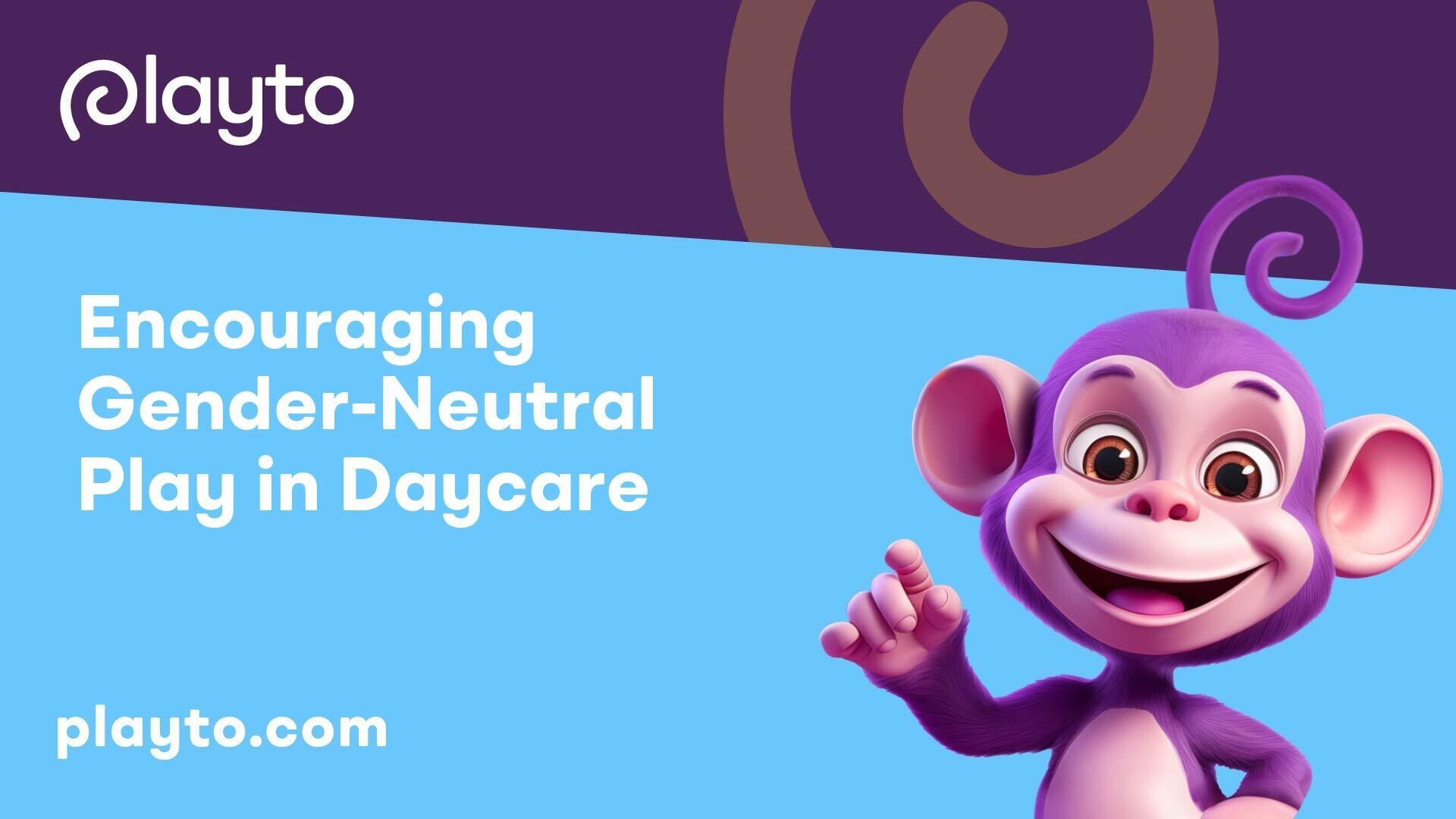
Promoting Diversity in Daycare
In the realm of daycare settings, the importance of early education cannot be overstated. Research shows that children as young as six months old can recognize differences in skin color, and by the age of five, they begin associating certain traits, stereotypes, and characteristics based on their observations, emphasizing the significance of promoting diverse, equitable, and inclusive learning environments in early childhood education.
Creating an atmosphere that encourages inclusive environments in daycare facilities plays a vital role in shaping children's perceptions and attitudes towards diversity, equity, and inclusion. Early childhood education serves as a prime opportunity to engage in conversations about these crucial topics, influencing children positively and instilling values of openness, respect, and acceptance towards individuals different from themselves [1].
By incorporating diversity, equity, and inclusion into all aspects of daycare operations, including interactions with staff, families, and the broader community, daycare centers can create a welcoming and accepting environment for all. This approach not only enhances children's self-perception and self-confidence but also fosters empathy, kindness, and compassion, contributing to a more respectful treatment of others regardless of their backgrounds. Embracing diversity in daycare settings not only promotes a sense of belonging and acceptance but also raises awareness of implicit biases, fostering a culture of respect and inclusivity throughout the early childhood education experience [1].

Embracing Gender-Neutral Play
In the context of daycare settings, encouraging gender-neutral play is essential to create inclusive and supportive environments that cater to the needs of all children, including gender-expansive individuals. By fostering a gender-neutral approach, daycares can promote diversity and social and emotional learning among children. This section explores two key aspects of embracing gender-neutral play: creating safe spaces and supporting gender-expansive children.
Creating Safe Spaces
Creating safe spaces within daycare facilities is fundamental to nurturing an environment where all children feel respected, accepted, and free to express their full selves. According to Virtual Lab School, gender-neutral environments support all children and prevent distress for gender-expansive and LGBTQ children. These spaces allow children, irrespective of their gender identity, to play without constraints or societal norms dictating their choices.
In a gender-neutral play environment, it's important to provide toys, clothing, and activities that are accessible to all children, regardless of their assigned gender at birth. This eliminates the need for separate standards for boys and girls, ensuring equal opportunities for participation. By offering a diverse range of choices, daycare centers reinforce the message that children are free to select items that resonate with their individual preferences.
Gender-neutral play areas should also be designed to facilitate collaborative play, where children of all genders can engage in activities together. By removing gender-specific labels and stereotypes from play areas, daycare providers can promote a more inclusive and harmonious play environment for all children.
Supporting Gender-Expansive Children
Supporting gender-expansive children in daycare settings involves recognizing and respecting their unique identities and experiences. Gender-expansive children represent a significant proportion of the population and should be afforded the space to articulate their feelings and experiences in their own words, ensuring that they are acknowledged and supported.
Pronoun inclusivity plays a vital role in supporting gender-expansive or transgender children. Research indicates that using appropriate gender-affirming pronouns can have a profound impact on the mental well-being of these children. Studies have shown that transgender youth who are addressed by their chosen name and pronouns report lower levels of depression and reduced thoughts of suicide, highlighting the significance of respectful language use in daycare environments.
By incorporating practices that validate and embrace gender-expansive children, daycare providers can create a nurturing and affirming space where all children feel valued and supported. This approach promotes a sense of belonging and acceptance among gender-diverse individuals, fostering an environment where every child can thrive and develop their unique identity.

Practical Strategies in Daycare
In the journey of encouraging gender-neutral play in daycare, implementing practical strategies plays a crucial role in creating inclusive and supportive environments for all children. Two key strategies that can positively impact gender diversity in daycare settings are gender-neutral programs and pronoun inclusivity.
Gender-Neutral Programs
Gender-neutral programs in daycares focus on providing clothing, toys, and activities that are accessible to all children, regardless of their gender identity. These programs eliminate separate standards or criteria based on gender, allowing boys, girls, and gender-expansive children to engage in play without limitations or stereotypes. By offering a diverse range of choices, gender-neutral programs empower children to select clothes, toys, and activities that resonate with their individual preferences. This approach creates a safe and inclusive space where children can explore their interests freely, breaking away from traditional gender norms.
Gender-neutral programs not only promote equality and diversity but also foster a sense of belonging and acceptance among children. By embracing a variety of options that cater to different preferences and interests, daycare providers can cultivate an environment where all children feel valued and respected for who they are, irrespective of their gender identity. For more insights on progressive approaches in daycare settings, refer to our article on the impact of positive reinforcement in daycare.
Pronoun Inclusivity
Acknowledging and respecting individual pronouns is a fundamental aspect of supporting gender-expansive and transgender children in daycare. Using appropriate pronouns and recognizing chosen names can have a profound impact on the mental well-being and self-esteem of children exploring their gender identity. Research indicates that addressing transgender youth by their preferred name and pronouns is associated with reduced rates of depression and suicidality, highlighting the significance of pronoun inclusivity in daycare environments.
By incorporating pronoun inclusivity practices, daycare staff can create a more inclusive and affirming atmosphere where all children feel seen and valued for their authentic selves. Respecting and validating each child's chosen pronouns not only promotes a culture of acceptance but also contributes to building a supportive community where diversity is celebrated. To further explore the positive impacts of inclusive practices, delve into our article on the benefits of parent involvement in daycare activities.
Incorporating gender-neutral programs and pronoun inclusivity in daycare settings is a proactive step towards fostering an environment that embraces diversity, respects individuality, and encourages all children to explore their identities freely. These strategies not only promote inclusivity but also empower children to express themselves authentically, contributing to a nurturing and supportive daycare experience for all.
Teachers' Role in Fostering Inclusion
In the context of early childhood education, teachers play a critical role in fostering inclusion and creating a welcoming environment for all children. Two significant aspects of this role are ensuring a diverse teaching staff and challenging gender stereotypes.
Diverse Teaching Staff
Research has shown that children benefit academically and emotionally from having teachers who reflect diversity. A diverse teaching staff not only promotes values of diversity, equity, and inclusion but also provides children with role models from various backgrounds. When children see teachers who resemble them in terms of race, ethnicity, culture, or language, it enhances their sense of belonging and self-esteem.
Having a diverse teaching staff is essential for creating a learning environment where children feel accepted and valued for who they are. Through interactions with teachers from diverse backgrounds, children learn to appreciate differences and develop empathy towards others. This inclusivity sets a positive example for children and reinforces the importance of respecting and embracing diversity from a young age.
Challenging Gender Stereotypes
Addressing gender stereotypes is a crucial aspect of fostering inclusion in early childhood education. Young children are in the process of understanding gender as a fundamental element of their identity. Teachers need to create an environment where all gender expressions are respected and validated.
To challenge gender stereotypes, educators can implement practices such as incorporating coed activities, partnering children across genders, and including plays with cross-gender roles. By offering diverse experiences and promoting inclusivity, teachers help children explore identities beyond traditional norms. This approach encourages children to develop broader perceptions and interpretations of gender, leading to a more inclusive and accepting classroom culture.
By nurturing a diverse teaching staff and challenging gender stereotypes in the classroom, teachers contribute to creating a more inclusive and equitable learning environment for all children. Embracing diversity and promoting inclusivity from a young age not only benefits individual children but also fosters a sense of understanding, compassion, and respect among peers. These initiatives lay the foundation for a more inclusive society where differences are celebrated and embraced.
Social and Emotional Learning
When it comes to fostering social and emotional learning in daycare settings, incorporating outdoor activities is a valuable component that provides numerous benefits to children. Additionally, addressing and overcoming financial barriers is crucial in ensuring that all children have equal access to these enriching experiences.
Benefits of Outdoor Activities
Outdoor activities play a significant role in promoting social and emotional learning among children in daycare. Research highlights that outdoor time is essential in early childhood education (ECE) settings, offering a range of positive outcomes for children's well-being and development. Outdoor educators spend considerably more time outside per week compared to other educators, emphasizing the importance of outdoor exposure in enhancing health outcomes.
Children engaging in outdoor activities have opportunities to develop essential social skills such as cooperation, communication, and problem-solving. Outdoor play also encourages physical activity, which contributes to better overall health and well-being. Being exposed to nature can have a calming effect on children, reducing stress levels and promoting a sense of tranquility.
Overcoming Financial Barriers
However, financial barriers can hinder access to quality outdoor experiences for children in daycare, particularly in communities facing economic adversity. It is essential to address these challenges to ensure that all children have equitable opportunities for social and emotional growth through outdoor activities.
Parents prioritize social and emotional learning and outdoor time when choosing an early childhood education (ECE) setting for their children. By recognizing the importance of outdoor play in children's development, efforts can be made to increase the availability of outdoor spaces in daycare centers and provide financial support for families in need.
Low-income families may face additional stressors that impact children's social and emotional well-being. Research shows that low income is associated with higher rates of anxiety in children, making access to outdoor activities even more critical as a potential protective factor against the negative impacts of financial hardship.
By prioritizing outdoor activities and working to overcome financial barriers, daycare providers can create inclusive environments that support social and emotional learning for all children, regardless of economic status. Encouraging outdoor play and addressing financial challenges are essential steps in promoting holistic development and well-being among children in daycare settings.
